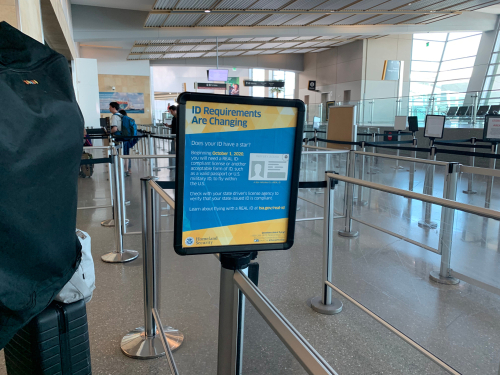
The deadline for enforcement of the federal REAL ID requirements looks to be delayed again after the U.S. Department of Homeland Security (DHS) announced its intention this week to push it back to May 7, 2025, to give states more time to meet requirements.
“DHS continues to work closely with U.S. states, the District of Columbia, and the U.S. territories to meet REAL ID requirements,” Secretary of Homeland Security Alejandro Mayorkas said. “This extension will give states needed time to ensure their residents can obtain a REAL ID-compliant license or identification card. DHS will also use this time to implement innovations to make the process more efficient and accessible. We will continue to ensure that the American public can travel safely.”
REAL ID has struggled to gain traction nationwide since Congress passed the REAL ID Act of 2005, which created minimum security standards for state-issued driver’s licenses and ID cards. These standards included anti-counterfeiting technology, insider fraud prevention, and wider use of documentary evidence and record checks before issuance.
Not every state moved at the same pace in meeting these checks and balances. Hindering things further in recent years was the COVID-19 pandemic, which DHS said significantly hindered state driver’s licensing agencies with major backlogs. In response, many automatically extended the expiration dates of existing licenses and IDs or shifted to appointment-only operations, making REAL ID trickier to demand.
Still, the DHS stressed that all 50 U.S. states, the District of Columbia, and four of five U.S. territories now utilize REAL ID-compliant driver’s licenses and ID cards.
However, every traveler 18 years old and up will now have until 2025 before needing a Transportation Security Administration (TSA) acceptable form of ID at airport security checkpoints for domestic air travel. Meanwhile, TSA will continue deploying new technologies at these checkpoints to continue to enhance security capabilities beyond IDing and proceed with vetting capabilities through programs like Secure Flight and TSA PreCheck to match passengers to trusted traveler lists before their flights.




